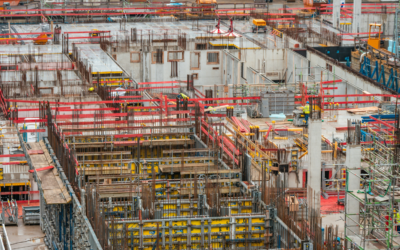Property development represents one of the most lucrative sectors in real estate, offering investors the opportunity to transform raw land or existing property into high-value assets. Success in this industry requires more than capital—it demands strategic thinking, market expertise, and careful execution of development processes.
The real estate development industry has evolved significantly, with modern property developers serving as orchestrators of complex projects that balance financial returns with community needs. Properties developed with strategic planning and sustainable practices have seen ROI increases of 10-15% according to the U.S. Green Building Council, while strategic renovations can yield 20-30% increases in property value per the National Association of Realtors.
Understanding how to maximize returns in property development involves mastering multiple disciplines: market research, financial modeling, risk management, and project execution. This comprehensive guide explores proven strategies that successful property developers use to optimize their investment opportunities and achieve sustainable growth in both commercial and residential markets.
Property Development
Property development encompasses the entire process of transforming land or existing structures into profitable real estate assets. This complex undertaking involves land acquisition, planning, financing, construction, and marketing, each stage requiring specialized knowledge and careful execution.
The development process begins with identifying investment opportunities in residential properties, commercial real estate, or mixed-use projects. Successful property developers understand that market conditions play a crucial role in determining project viability. Properties developed in high-demand urban areas near transportation and amenities show 15-20% higher ROI compared to suburban projects, according to the Urban Land Institute.
Modern property development extends beyond traditional construction. It involves understanding zoning codes, building codes, and permitting processes while navigating environmental regulations and sustainability requirements. The integration of advanced technology and smart building features has become increasingly important, with projects incorporating these elements seeing 12-18% increases in ROI according to Deloitte Real Estate Trends.
Property Developers
Property developers serve as the driving force behind successful development projects, coordinating multiple stakeholders and managing complex timelines. Their responsibilities extend far beyond basic project oversight—they must possess expertise in market analysis, financial management, and risk assessment.
Building an effective development team requires assembling skilled professionals, including planning consultants, contractors, architects, and marketing experts. The most successful property developers understand that their role involves being both visionary and pragmatist, balancing ambitious goals with practical constraints.
Expertise in market research forms the foundation of successful property development. Developers must identify target audiences, understand potential buyers’ needs, and position projects to maximize appeal. This market-driven approach helps ensure that developed properties meet demand and achieve optimal selling prices.
Risk management represents another critical competency for property developers. This involves thorough due diligence during land acquisition, careful financial modeling, and maintaining contingency plans for unexpected challenges during the construction and marketing phases.
Property Development Projects
Development projects follow structured phases, each requiring specific expertise and resources. The journey from initial concept to final sale involves land acquisition, planning, construction, marketing, and project completion.
Land acquisition requires a thorough analysis of property values, development potential, and regulatory requirements. Successful developers conduct comprehensive market research to identify locations with strong growth potential and favorable market conditions. The evaluation process includes assessing zoning restrictions, infrastructure availability, and proximity to amenities that attract target buyers.
Planning phases involve working with planning consultants to navigate permitting processes and ensure compliance with local regulations. This stage requires balancing project vision with regulatory requirements, often involving negotiations with municipal authorities and community stakeholders.
Construction management demands coordination of contractors, suppliers, and skilled professionals while maintaining quality standards and budget controls. Projects that emphasize thorough market research and financial modeling can reduce risks by 20-25%, leading to more predictable returns, according to PwC Real Estate Outlook.
Development Project
Individual development projects require careful resource allocation, from initial funding through final sales. Understanding the specific requirements of each project type—whether residential, commercial, or mixed-use—helps developers optimize their approach and maximize returns.
Project success depends on understanding your target audience and potential buyers from the earliest planning stages. This knowledge influences design decisions, amenity selection, and marketing strategies. Developers who invest time in understanding market demand position their projects for stronger sales performance and higher profit margins.
Financial projections must account for all project costs, including land acquisition, construction, marketing, and carrying costs during the development and sales phases. Accurate financial modeling helps secure funding from investors and provides roadmaps for project execution.
The most successful development projects balance innovation with market realities. This might involve incorporating sustainable building practices that appeal to environmentally conscious buyers while controlling costs, or designing flexible spaces that adapt to changing tenant needs in commercial properties.
Real Estate Developer
What degree is best for property development?
Common educational backgrounds for real estate developers include Business Administration, Real Estate, Finance, Construction Management, and Urban Planning. Each degree path offers unique advantages for different aspects of property development.
Business degrees provide foundational knowledge in financial management, marketing strategy, and project management—all essential skills for development success. Real Estate programs offer specialized training in property valuation, market analysis, and investment principles. Finance backgrounds prepare developers for the complex financial modeling required in development projects.
Construction Management degrees offer practical knowledge of building processes, cost estimation, and contractor management. Urban Planning programs provide an understanding of zoning, community development, and regulatory processes that influence development projects.
Do you need a degree for property development?
While formal education provides valuable foundations, many successful property developers have built careers through experience, industry knowledge, and networking. The real estate development industry values practical skills and proven track records alongside educational credentials.
Professional development through certificate programs offers targeted training for specific aspects of property development. These programs often provide more immediately applicable skills than traditional degree programs, focusing on financial modeling, market analysis, and project management.
Success in property development ultimately depends on understanding market dynamics, managing financial risks, and executing projects effectively. These competencies can be developed through various paths, including formal education, mentorship, and hands-on experience.
What is the highest salary of a real estate developer?
Real estate developer compensation varies significantly based on project size, location, and market conditions. Entry-level positions typically range from $50,000 to $80,000 annually, while experienced developers can earn $150,000 to $500,000 or more.
Senior developers and those who own development companies often earn substantial returns through project equity rather than traditional salaries. Successful developers may earn percentages of project profits, which can result in seven-figure annual incomes on large projects.
Geographic location significantly influences earning potential. Developers in major metropolitan markets like New York, Los Angeles, and San Francisco typically command higher compensation due to larger project values and higher property prices.
Is a real estate developer a good career?
Real estate development offers substantial earning potential and the satisfaction of creating lasting community assets. However, the industry involves significant financial risks and market volatility that require careful consideration.
The career provides opportunities for creative problem-solving, working with diverse teams, and contributing to community development. Successful developers often find the work personally rewarding beyond financial returns.
Market cycles affect development opportunities, with economic downturns potentially limiting new projects. However, experienced developers often find opportunities during market corrections, acquiring land at reduced prices for future development.
Land Development
Land development involves transforming raw land into developed property ready for construction or sale. This process requires navigating complex regulatory environments while managing environmental considerations and infrastructure requirements.
The planning phase involves working with planning consultants to secure necessary permits and approvals. This includes environmental assessments, zoning applications, and infrastructure planning. Understanding local regulations and building relationships with municipal authorities accelerates approval processes.
Environmental considerations have become increasingly important in land development. Sustainable practices not only meet regulatory requirements but also attract environmentally conscious buyers and tenants. Projects incorporating green building techniques often command premium prices and experience faster sales.
Infrastructure development—including roads, utilities, and drainage systems—represents a significant cost component in land development. Careful planning and engineering help optimize these investments while ensuring compliance with safety standards and building codes.
Real Estate
The broader real estate market provides the context within which all property development occurs. Understanding market cycles, property values, and investment trends helps developers time their projects effectively and identify the most profitable opportunities.
Commercial real estate differs significantly from residential development in terms of financing, tenant requirements, and investment returns. Office buildings and retail spaces require an understanding of business needs, lease structures, and long-term market trends.
Market research provides the foundation for successful real estate development. This involves analyzing demographic trends, economic indicators, and competitive landscapes to identify opportunities and potential challenges.
Property values fluctuate based on numerous factors, including location, market conditions, and property characteristics. Developers must understand these dynamics to optimize their investment timing and project positioning.
Market Research
Thorough market research forms the foundation of successful property development, helping developers identify profitable investment opportunities and understand their target audience. This process involves analyzing demographic trends, economic indicators, and competitive landscapes.
Effective market research examines both current conditions and future projections. Developers must understand population growth patterns, employment trends, and infrastructure development plans that influence long-term property demand.
Competitive analysis helps developers position their projects effectively within existing markets. This includes studying comparable properties, pricing strategies, and amenities that attract target buyers or tenants.
Tools for market research range from demographic databases and economic reports to on-site surveys and focus groups. The most successful developers combine quantitative data with qualitative insights to develop comprehensive market understanding.
Commercial Real Estate
Commercial real estate development presents unique opportunities for generating substantial returns, but it requires specialized knowledge of business tenant needs and market dynamics. Office buildings, retail spaces, and mixed-use developments each present distinct challenges and opportunities.
Financial modeling for commercial properties must account for lease structures, tenant improvements, and longer-term market cycles. Commercial developments often require larger initial investments but can provide steady income streams through long-term leases.
Location plays an especially critical role in commercial real estate success. Properties near transportation hubs, business districts, and amenities command higher rents and experience lower vacancy rates.
Understanding potential tenants’ needs helps developers design spaces that attract and retain quality tenants. This might involve flexible floor plans, modern technology infrastructure, or specialized amenities for specific industries.
Financial Modeling
Creating accurate financial models is essential for securing funding, managing project risks, and maximizing returns. These models must account for all project costs, revenue projections, and potential market scenarios.
Key financial metrics for property development include Net Present Value (NPV), Internal Rate of Return (IRR), and cash-on-cash returns. These calculations help developers and investors evaluate project viability and compare different investment opportunities.
Construction costs represent a major component of development budgets and require careful estimation. This includes materials, labor, permits, and contingencies for unexpected expenses during construction.
Revenue projections must reflect realistic market conditions and sales timelines. Overly optimistic projections can lead to inadequate funding and project delays, while conservative estimates might result in missed opportunities.
Financial Projections
Developing comprehensive financial projections requires understanding all aspects of the development process, from initial land costs through final sales. These projections serve as roadmaps for project execution and benchmarks for measuring performance.
Accurate projections help developers secure funding from investors and lenders who require detailed financial analysis before committing capital. Professional-quality financial models demonstrate competency and reduce perceived investment risks.
Market conditions significantly influence revenue projections, requiring developers to model various scenarios, including optimistic, realistic, and conservative outcomes. This scenario planning helps prepare for market changes during the development and sales phases.
Regular updates to financial projections throughout the development process help identify potential issues early and adjust strategies accordingly. This ongoing analysis ensures projects remain on track financially and operationally.
Certificate Programs
Professional development through certificate programs provides targeted training for real estate development skills without requiring full degree programs. These programs often focus on practical applications and current industry practices.
Certificate programs typically cover financial modeling, market analysis, project management, and regulatory compliance. Many programs offer flexible scheduling to accommodate working professionals seeking to enhance their development expertise.
Specialized training enhances career prospects and provides credibility with investors and partners. Many certificate programs include networking opportunities with industry professionals and potential mentors.
Continuing education helps developers stay current with changing regulations, market trends, and best practices. The real estate development industry evolves continuously, making ongoing learning essential for long-term success.

Maximizing Your Development Success
Property development offers substantial opportunities for creating wealth while contributing to community growth. Success requires combining market knowledge, financial expertise, and execution capabilities with a commitment to quality and client satisfaction.
The most successful developers understand that maximizing ROI involves more than minimizing costs—it requires creating properties that meet market demand while maintaining high standards of quality and sustainability. This approach builds long-term reputation and repeat business opportunities.
Working with experienced partners can significantly enhance project outcomes. Companies like South Coast Improvement Company bring design-build expertise, client-focused approaches, and proven track records to development projects. Their integrated services eliminate conflicts between design and construction teams while ensuring accountability throughout the project lifecycle.
Whether you’re developing residential properties, commercial real estate, or mixed-use projects, investing in thorough market research, professional financial modeling, and experienced construction partners positions your projects for success. The combination of strategic planning, quality execution, and client satisfaction creates the foundation for sustainable returns in property development.
Ready to maximize your development project’s potential? Contact South Coast Improvement Company to discuss how our design-build expertise and client-focused approach can enhance your project outcomes and ROI. Our team brings the preparedness, professionalism, and experience needed to transform your vision into a profitable reality.
Learn More About Property Development
If you’d like to dive deeper into the world of property development and the real estate development industry, these credible resources offer valuable insights, strategies, and professional guidance:
- Urban Land Institute (ULI) – Industry-leading research, trends, and education on property and land development.
- National Association of Home Builders (NAHB) – Resources for residential and mixed-use property developers.
- Royal Institution of Chartered Surveyors (RICS) – Global standards, guidance, and market reports for developers.
- CCIM Institute – Commercial real estate education, financial modeling tools, and investment analysis.
- REALTOR® Magazine – Development Articles – News and tips for property developers and investors.
- Harvard Joint Center for Housing Studies – Research and data on housing trends, property values, and development.
- Investopedia – Real Estate Development Guide – Definitions, processes, and investment strategies.
- National Real Estate Investor (NREI) – Commercial property news, market research, and investment insights.
View Our Work
Aspen Dental
Partnering with The Aspen Group on the construction of a new Aspen Dental facility that’s functional & welcoming for patients & staff alike. South Coast Improvement Company was awarded the construction of a new Aspen Dental facility in Killingly, CT. The...
Springhouse Senior Living – HumanGood
Designed to enhance comfort & functionality. South Coast Improvement company was hired by HumanGood for an interior and exterior renovation at Springhouse Senior Living. Our skilled teamtransformed the 2nd through 5th floor common areas into brighter, more...






